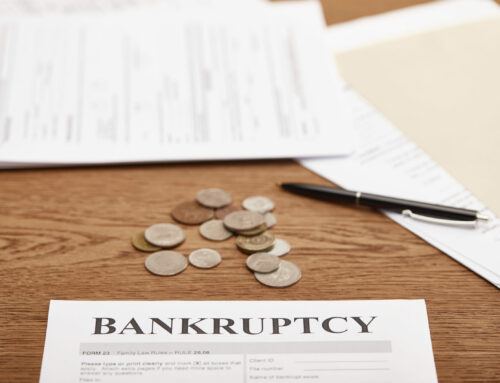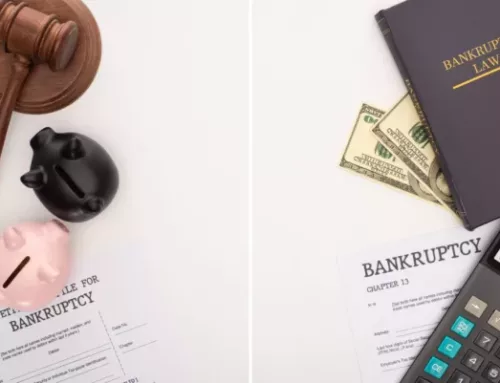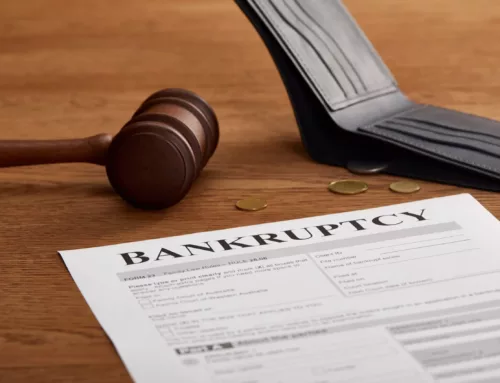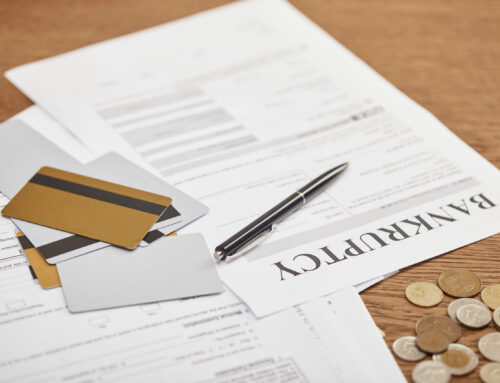Understand life after bankruptcy regarding your credit score and future finances
Bankruptcy can have far-reaching effects on an individual’s financial well-being, particularly regarding credit score and future economic prospects. Understanding the most common consequences of bankruptcy on your credit score and future financial life is essential for anyone facing or considering this option. By gaining insights into these consequences, individuals can make informed decisions, seek appropriate professional advice, and take proactive steps toward restoring their financial stability.
With the help of our legal team from The Rollins Law Firm, we can help you understand the impact of bankruptcy on credit scores, the challenges it presents for future borrowing and financial opportunities, strategies for rebuilding credit, and navigating the post-bankruptcy monetary landscape. Bankruptcy indeed settles debts but with consequences. To learn more about bankruptcy, contact our Mississipi bankruptcy attorneys now and schedule a free consultation.
What is Bankruptcy?
Bankruptcy is a legal process providing individuals or businesses with overwhelming debt to obtain relief from their financial obligations. It is a formal declaration that signifies an inability to pay debts and seeks a resolution to either discharge debts entirely or establish a structured repayment plan.
Bankruptcy aims to provide individuals or businesses with a fresh start by eliminating or restructuring their debts under the supervision of a bankruptcy court. The specific procedures and rules governing bankruptcy vary depending on the jurisdiction and the type of bankruptcy filing, such as Chapter 7 or Chapter 13 in the United States.
Understanding Credit Scores and Reporting Agencies
Credit scores and reporting agencies play a significant role in the financial world. A credit score is a numerical representation of an individual’s creditworthiness and financial reliability. It is a measure of the individual’s credit risk. It is used wisely by lenders, landlords, insurers, and other financial institutions to assess the likelihood of repayment and make informed decisions. Credit scores typically range from 300 to 850, with higher scores indicating lower credit risk and better creditworthiness.
Credit reporting agencies (OR credit bureaus or credit-reporting companies) collect, compile, and maintain credit information on individuals and businesses. The major credit reporting agencies include Equifax, Experian, and TransUnion. These agencies gather data from various sources, such as creditors, lenders, and public records, to create credit reports that contain information on an individual’s credit history, payment behavior, outstanding debts, and public records like bankruptcies or liens. They use this data to calculate credit scores and provide credit reports to lenders, employers, and individuals upon request.
Credit reporting agencies play a crucial role in assessing creditworthiness, as they provide the foundation for credit scores and enable lenders to evaluate the risk associated with extending credit. They ensure the accuracy and reliability of credit information, allowing individuals to access their credit reports, monitor their credit activity, and address any inaccuracies or discrepancies that may affect their creditworthiness.
What are the Most Common Consequences of Bankruptcy on your Credit Score and Future Financial Life?
Most people have serious concerns and questions about filing for bankruptcy. Most of their fears are unfounded. Many people’s assumptions about bankruptcy come from myths and misconceptions about the bankruptcy process and its effects.
The consequences of bankruptcy on credit scores can be significant and long-lasting. Here are some common effects:
- Negative Impact on Credit Score: Filing for bankruptcy can cause a substantial drop in your credit score. The exact impact will depend on your previous credit history and the type of bankruptcy filed. Chapter 7 bankruptcy typically remains on your credit report for up to 10 years, while Chapter 13 bankruptcy stays on your report for up to 7 years.
- Difficulty in Obtaining Credit: Bankruptcy can make it challenging to obtain new credit or loans in the future. Lenders view bankruptcy as a red flag and may hesitate to extend credit to someone with a history of financial distress. If you are approved for credit, it may come with higher interest rates, stricter terms, or lower credit limits.
- Limited Access to Favorable Interest Rates: Even if you can obtain credit after bankruptcy, you may be offered higher interest rates due to the perceived higher risk associated with your credit history. That can result in higher borrowing costs and increased repayment obligations.
- Impact on Housing and Rental Opportunities: Bankruptcy can affect your ability to rent a home or secure favorable housing arrangements. Landlords often consider creditworthiness a crucial factor in their tenant selection process, and a bankruptcy on your credit report may raise concerns about your financial stability.
- Employment and Insurance Considerations: While bankruptcy does not directly impact employment, some employers may perform credit checks as part of their hiring process, particularly for positions involving financial responsibilities. Certain insurance companies may also consider your credit history when determining premiums or coverage options.
- Rebuilding Credit Takes Time: Recovering from bankruptcy and rebuilding your credit score will require time and responsible financial behavior. Taking steps such as making timely payments, maintaining low credit utilization, and using credit responsibly can gradually improve your creditworthiness over time.
Remember that the exact consequences may vary depending on individual circumstances and the specific details of the bankruptcy case. Working with a financial advisor or credit counselor can help you understand the implications and develop a plan to rebuild your credit after bankruptcy.
How Do I Improve and Maintain Good Credit Scores?
Improving and maintaining good credit scores requires a consistent and responsible approach. Here are some strategies to help you improve and maintain a healthy credit score:
- Pay Bills on Time: Pay all your bills, including credit card payments, loan installments, and utility bills, on time. Late or missed payments can harm your credit score. Set up reminders or automatic payments to ensure timely payments.
- Reduce Credit Card Balances: Aim to keep your credit card balances low, ideally below 30% of your available credit limit. High credit utilization can negatively affect your credit score. Pay off debts and avoid maxing out your credit cards.
- Use Credit Wisely: Use credit responsibly and avoid accumulating excessive debt. Only borrow what you need and can comfortably repay. Maintain a healthy mix of credit types, such as credit cards, loans, or a mortgage, to demonstrate your ability to manage different types of debt.
- Regularly Check Your Credit Report: Obtain copies of your credit reports from major credit reporting agencies and review them for accuracy. Dispute errors or inaccuracies promptly to ensure your credit report reflects correct information.
- Limit New Credit Applications: Avoid frequent applications for new credit. Each credit application generates a hard inquiry on your credit report, which can temporarily lower your credit score. Be selective and apply only for the credit you genuinely need.
- Maintain Long Credit History: A longer credit history generally contributes positively to your credit score. If you have older credit accounts, keep them open and active. Closing old accounts can reduce the overall length of your credit history.
- Be Cautious with Closing Accounts: While it’s crucial to manage your credit accounts responsibly, closing accounts can impact your credit utilization ratio and overall credit history. Before closing accounts, consider the potential effects on your credit score.
- Seek Professional Guidance: If you’re struggling with your credit or need assistance improving it, consider working with a credit counselor or financial advisor. They can provide personalized advice and guidance to help you navigate credit challenges and develop a plan to improve your credit score.
Remember, improving and maintaining good credit scores is a gradual process. Consistency in responsible credit management, timely payments, and financial discipline will contribute to long-term creditworthiness and financial stability.
Contact our Mississippi Bankruptcy Attorney Now!
Understanding the most common consequences of bankruptcy on your credit score and future financial life is crucial. Bankruptcy can negatively impact your credit score, making it hard to obtain new credit and loans at favorable terms. It can also affect housing and rental opportunities, employment prospects, and insurance premiums. However, you can navigate these consequences more effectively by working with professionals like bankruptcy attorneys.
At The Rollins Law Firm, you can develop strategies to rebuild your credit, establish healthy financial habits, and move toward a more secure financial future. Remember, while bankruptcy may have immediate consequences, proactive steps and responsible financial management can help you regain control and set yourself on a path towards long-term financial success.
Don’t face the challenges of bankruptcy alone. Contact our MS bankruptcy attorney to protect your creditworthiness and pave the way toward financial recovery. Schedule a free consultation now!








Connect with Us